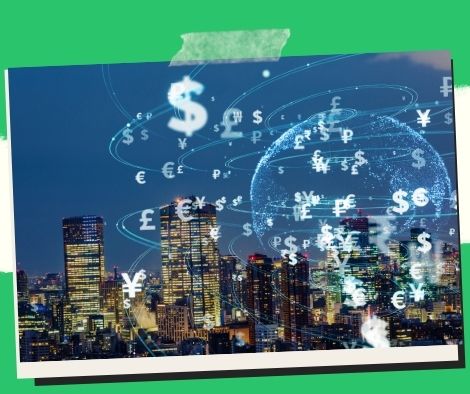
Foreign financial market developments will impact hot money flows in the Philippines
In the upcoming months, it is anticipated that changes in the United States inflation rate and the price of oil and other commodities on the international market may influence the flow of registered foreign portfolio investments into the Philippines.
The Bangko Sentral ng Pilipinas (BSP) reported on Friday a change in the net outflows of foreign investments registered with the central bank, also known as hot money due to the speed at which it enters and exits the nation, from USD292 million net inflows the previous month to USD531 million net outflows.
In a commentary, Michael Ricafort, chief economist of Rizal Commercial Banking Corporation (RCBC), said the net outflows of hot money last month, which were caused by total inflows of USD 680 million and total outflows of USD 1.21 billion, were impacted by market volatility caused, among other things, by geopolitical tensions between the US and China and the slower-than-expected slowdown in some US inflation gauges.
He claimed that in the coming months, a number of variables are expected to have an impact on hot money flows to and from the domestic economy, including the US and domestic inflation environments, changes in the US and international financial markets, variations in the price of oil and other commodities around the world, and US banking issues, among others.
In order to significantly lower the elevated US inflation rate, he noted that, among other things, further slowing of the US inflation rate “would nevertheless support lesser Fed (Federal Reserve) rate hikes for the coming months.”
Nevertheless, Ricafort stated that recent worries over a few US bank failures “raise the possibility of US economic slowdown or perhaps recession, hence could potentially lead to a probable Fed rate pause or even future Fed rate cuts, moving forward.”
He added that the Tax Reform for Acceleration and Inclusion’s reduction in individual income taxes, which takes effect in January but excludes the highest income bracket, “may help boost consumer spending, which accounts for at least 75% of the local economy.”
He continued, “(The lower individual income taxes serve as) a de facto stimulus and would be a relief amid higher prices and inflation recently; but could lead to some foregone government revenues and widen the government’s budget deficit, though mitigated by any corresponding increase in sales taxes and VAT in light of the increased take-home pay and consumer spending.
Save/Share this story with QR CODE
Disclaimer
This article is for informational purposes only and does not constitute endorsement of any specific technologies or methodologies and financial advice or endorsement of any specific products or services.
 Need to get in touch?
Need to get in touch?

We appreciate your reading. 
1.) 

Your DONATION will be used to fund and maintain NEXTGENDAY.com
Subscribers in the Philippines can make donations to mobile number 0917 906 3081, thru GCash.
3.) 
4.) 
AFFILIATE PARTNERS

World Class Nutritional Supplements - Buy Highest Quality Products, Purest Most Healthy Ingredients, Direct to your Door! Up to 90% OFF.
Join LiveGood Today - A company created to satisfy the world's most demanding leaders and entrepreneurs, with the best compensation plan today.

 Business, Finance & Technology
Business, Finance & Technology





